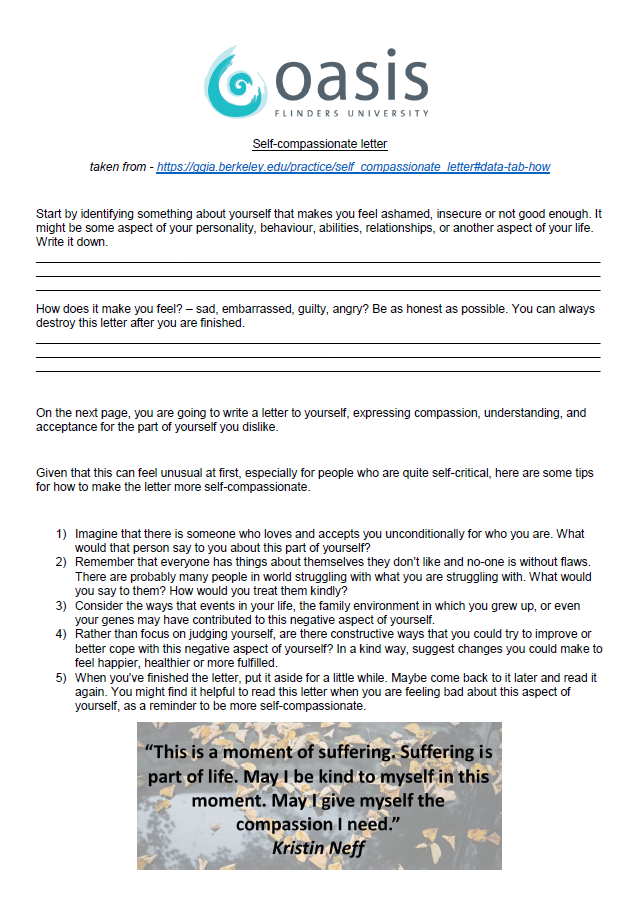
Two of the areas of mental fitness I’ve described previously include being able to build positive emotions, and also better manage distressing ones.
The ability to be self-compassionate addresses both. It acts as a potential antidote to distressing feelings experienced when you’ve made mistakes. It can also strengthen feelings of compassion towards other people.
The mental fitness exercise presented in this post comes courtesy of the Greater Good In Action website from Berkeley in the states. They’ve amassed a wonderful collection of well-being focused exercises that you can do. I thoroughly recommend following them.
The exercise we are looking at today is called a Self-compassionate letter.
What is self-compassion?
Self-compassion is treating yourself with warmth and understanding in difficult times. It is about acknowledging that making mistakes is a part of being human. It is about being mindful of negative thoughts and feelings, but not over-identifying with them, particularly the thoughts that are highly self-critical or demeaning.
Why is it important?
At the core of many negative feelings we experience are overly harsh or unkind judgements we make about ourselves.
Self-compassion is about extending to ourselves the same compassion or even just standards that we would likely apply to our best friends or family.
Practicing self-compassion is associated with greater resilience to negative feelings, and greater experience of positive feelings.
Self-compassion is not about telling yourself that you are amazing (that is more the self-esteem approach). Self-compassion is about being kind to yourself when you make mistakes that are inherently human in nature. Recognising that we all make mistakes, and knowing that treating oneself kindly when it happens is actually more likely to motivate us to make amends, and be better next time.
Evidence it works
Evidence of the potential benefit of this strategy comes from a range of studies. These are just some examples.
Shapira and Mongrain (2010) found that a daily online exercise of writing a brief self-compassionate letter (1 paragraph) to oneself about a distressing event led to improvements in depression and happiness at 3 and 6 months post-intervention.
Breines and Chen (2012) found that students exposed to brief self-compassion interventions perceived weaknesses as more changeable, reported greater motivation to make amends following a transgression, spent more time studying for a difficult test following an initial failure, and selected to interact with individuals who had worked through similar weaknesses to their own.
Neff & Germer (2013) found that a 8-week mindful self-compassion program (don’t worry, I am not going to ask you to do an 8-week program :)) led to improvements in self-compassion, mindfulness and ‘wellbeing’, as indicated by decreased stress, anxiety, depression and avoidance.
The exercise itself
I’ve captured the essence of the exercise on the downloadable pdf below. Basically, you are going to write yourself a letter, in which you express compassion for an aspect of yourself you don’t like. The process takes about 15-30 minutes. You can repeat the exercise as many times as you’d like, if you find the process helpful.
Learn more
http://self-compassion.org/


